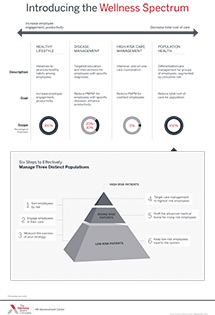Auto logout in seconds.
Continue LogoutHeadspace, a mobile app company that focuses on meditation, recently launched a subsidiary to create and test a prescription meditation app to submit for FDA approval to treat various health conditions, the Wall Street Journal reports.
Digital health systems 101: Learn about the ten newest exponential and disruptive technologies
Meditation grows more popular
NIH data suggest meditation is growing in popularity with the number of U.S. adults who reported mediating increasing from 10 million in 2011 to 18 million in 2012. But the health benefits of meditation, and particularly meditation guided by apps, remain unclear, the Journal reports.
Wendy Weber, acting deputy director of NIH's National Center for Complementary and Integrative Health, said, "The evidence is the strongest for meditation related to blood pressure, irritable bowel syndrome, and certainly in the area of lower-back pain." According to the Journal, the evidence showing meditation helps patients with depression is growing.
Weber added that physicians are regularly seeking non-pharmacological approaches to manage a patient's pain, and meditation apps might offer a new treatment method.
Aditi Nerurkar, medical director of the Cheng-Tsui Integrated Health Center at Beth Israel Deaconess Medical Center, said she has recommended meditation for several years, and more recently, her patients have asked about meditation apps. While Nerurkar typically teaches her patients meditation in person, she said she does recommend three apps that have some free components to her patients: Calm, Headspace, and Insight Timer.
Nerurkar said, "Whatever allows you to practice on a consistent basis, that's what you should do, whether that's an app, by yourself, or in a group."
Headspace plans to seek approval for prescription meditation app
Headspace recently launched a subsidiary called Headspace Health that is working to create a prescription medication to submit for FDA approval by 2020. The company will soon begin a series of clinical trials to test the app and support its application for approval.
Headspace plans to launch phase-one trials this summer, but it declined to provide details on what health conditions it would seek to treat in the trials, citing reasons related to competition, the Journal reports.
In the past, FDA has regulated mobile apps as medical devices, approving a few apps for conditions such as substance use disorders, the Journal reports.
Megan Jones Bell, the Headspaces's chief science officer who will the new health venture, said the company "identified a dozen conditions" that it will examine in clinical trials. Bell said, "This will likely be a unique code that the physician gives a patient" to access their prescribed medical program (Reddy, Wall Street Journal, 6/25).
Digital health systems 101: Learn about 10 exponential and disruptive technologies
Health care transformation is redefining and expanding the role for IT. Several key technologies are advancing exponentially and converging in unexpected ways to create new, and sometimes disruptive, capabilities.
Download our new resource which defines digital health systems, highlights ten exponential and disruptive technologies, and provides some strategic next steps for leaders.
Don't miss out on the latest Advisory Board insights
Create your free account to access 1 resource, including the latest research and webinars.
Want access without creating an account?
You have 1 free members-only resource remaining this month.
1 free members-only resources remaining
1 free members-only resources remaining
You've reached your limit of free insights
Become a member to access all of Advisory Board's resources, events, and experts
Never miss out on the latest innovative health care content tailored to you.
Benefits include:
You've reached your limit of free insights
Become a member to access all of Advisory Board's resources, events, and experts
Never miss out on the latest innovative health care content tailored to you.
Benefits include:
This content is available through your Curated Research partnership with Advisory Board. Click on ‘view this resource’ to read the full piece
Email ask@advisory.com to learn more
Click on ‘Become a Member’ to learn about the benefits of a Full-Access partnership with Advisory Board
Never miss out on the latest innovative health care content tailored to you.
Benefits Include:
This is for members only. Learn more.
Click on ‘Become a Member’ to learn about the benefits of a Full-Access partnership with Advisory Board
Never miss out on the latest innovative health care content tailored to you.

